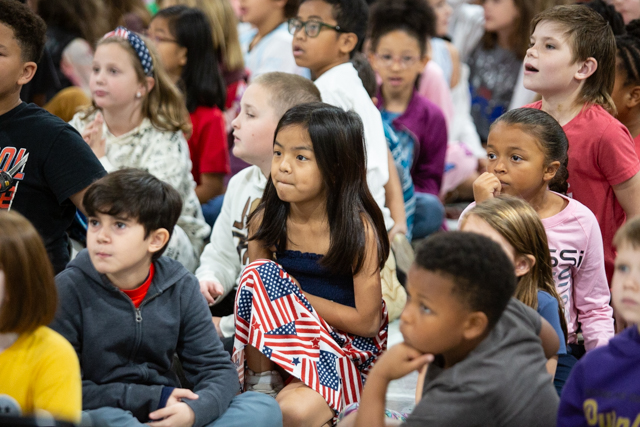Tough talk for today’s graduates
Published 9:35 am Wednesday, May 8, 2024

- Gary Houchens
This year’s college graduation season has been disrupted by pro-terrorist disorder at elite campuses. Poorly informed, privileged students, often manipulated by professional, outside agitators, seem to be having an emotional fit over global issues they clearly don’t understand.
Blessedly, such displays have been rare at smaller, regional institutions. But there’s still cause for concern about today’s youth. While we should celebrate the accomplishments of our graduates, the predictable, upbeat messages of encouragement we often hear during graduation season aren’t sufficient.
Trending
It’s time for students to hear some tough talk too: put down your phone, stop focusing on your feelings, give thanks for your blessings and get busy sacrificing yourself for others.
Every generation of adults laments the problems with “kids these days.” But psychologist Jonathan Haidt has extensively documented how today’s youth struggle with an unprecedented level of social disconnection and mental health problems. His latest book, “The Anxious Generation: How the Great Rewiring of Childhood is Causing an Epidemic of Mental Illness,” lays the blame squarely on the way technology has become the focal point of the childhood experience.
But another author, Abigail Schrier, argues that adults have taught children to be fragile and convinced of their own neuroses. Schrier’s book, “Bad Therapy: Why the Kids Aren’t Growing Up,” argues that as a culture we have turned every bad feeling, especially on the part of children, into a psychological problem that immediately needs to be treated as a defining feature of their lives.
The obsession with kids’ mental health is big business, since schools collectively spend millions of dollars per year on “social-emotional learning” programs that turn teachers into amateur therapists and have little discernible impact on children, other than making them feel worse by over-emphasizing the importance of their feelings.
By the time they get to college, many students are unable to take responsibility for basic life tasks, let alone the demands of their classes. Absences, missing assignments and sloppy work are blamed on their various mental conditions. Their communication is poor from spending too much time in a virtual, curated world. They are moral relativists with no sense of life purpose.
And they have little resilience to everyday challenges because they’ve been coddled by parents, teachers, and the larger society.
Trending
Of course, mental illness is a real thing, and when young people have experienced a genuine trauma or a chemical imbalance, they should seek the appropriate treatments. But they also need to be told that their feelings do not define who they are or what they’re capable of accomplishing.
Young people need to be told to toughen up, put on some decent clothes, work hard, and do something for someone else. Be grateful for your blessings and engage social change in ways that respect how easily the good can be destroyed along with the bad.
And while they’re at it: go to church, get married and stay together, raise a family, and do something good for your community.
Because these are the ingredients to a genuinely happy life and a just social order.
— Gary Houchens is professor and director of the educational leadership doctoral program at Western Kentucky University.






